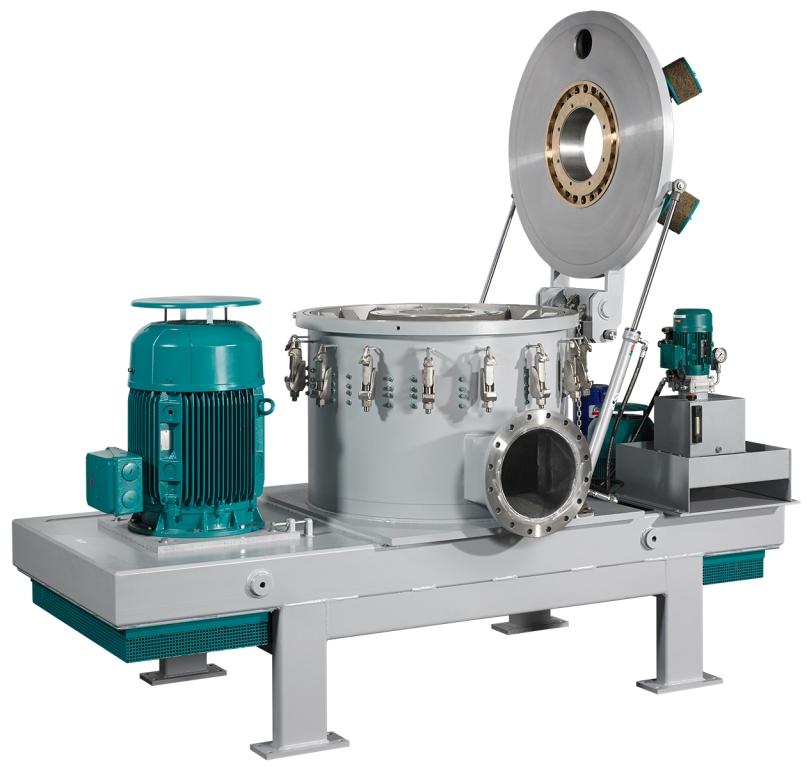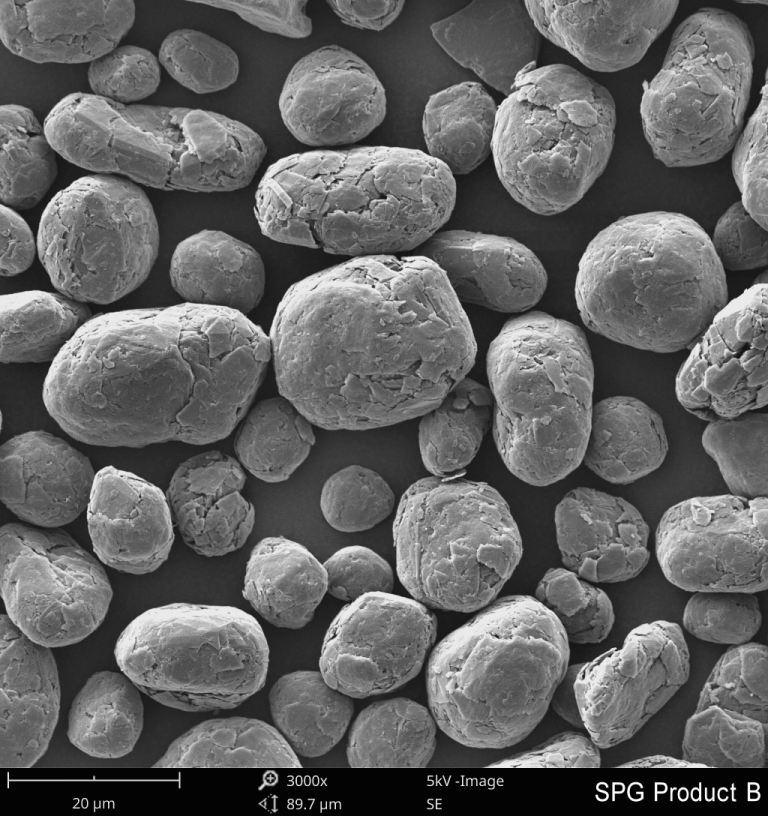11.11.2019
Efficient process for rounding of graphite
NETZSCH Trockenmahltechnik, Hanau, Germany, working in association with Hirschau-based Dorfner Anzaplan, has developed a solution for graphite rounding which is designed to overcome the disadvantages of the previously widely used process requiring more than 20 classifier mills installed in rows.
In a first step, the flock graphite is pre-ground to the optimum initial particle size for spheroidisation in a classifier mill or fluidised bed jet mill. The actual particle rounding process takes place directly downstream in the newly designed NETZSCH GyRho rounding unit which is available in various sizes and can be specially designed to suit the required output quantity. For larger throughput volumes, two (or more) machines can be operated simultaneously and can replace the above-mentioned series of 20 or more machines.
Graphite is used for anodes in production of lithium-ion-batteries. In order to obtain the high purity required for battery applications, the fine flake graphite which occurs naturally in stone, must be processed in various steps. Spherical graphite (SPG) is ideal for use as a raw material for anodes. Owing to its high tap density, high charging is achieved and consequently energy density is higher.
The increase in efficiency and the advantages which the new system offers, compared to the previous standard-plant train, are impressive: plant availability has been increased by 30% in comparison to previously used processes as the number of machines and consequently the probability of breakdown is reduced drastically. For this reason, maintenance costs are reduced by almost 90% and the compact setup means the plant can be installed in a 60% smaller space. In addition to this, the NETZSCH/Dorfner Anzaplan system requires only half the installed power of a plant train while achieving the same production capacity and using 60% less energy.
Product yield is a decisive improvement in the process. By optimising the design of the grinding chamber and reducing the number of components, it is now possible to increase yields of 30-40% achieved by the standard system to 60-65%. In this way, using the newly developed NETZSCH and Dorfner Anzaplan GyRho system, all qualities required by the market are achievable. These improvements are reported to result in an approximate 35% reduction in operational costs. In NETZSCH´s Hanau test facility, graphite-rounding tests can be carried out on a laboratory scale and up to production scale. www.netzsch.com/gd

The new GyRho system offers increased yields at reduced operational cost

Spherical graphite is used as a raw material for anodes in battery production
« Back
|